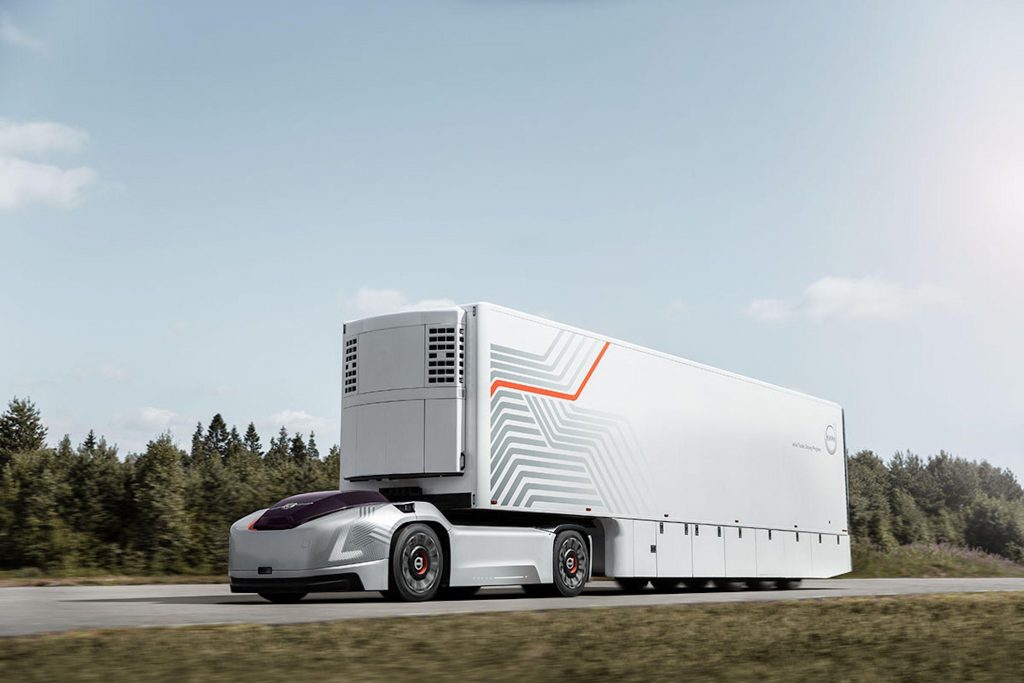Volvo Trucks, a leading global truck manufacturer, is now presenting a new transport solution consisting of autonomous electric commercial vehicles that can contribute to more efficient, safer and cleaner transportation.
Volvo Trucks’ Vera is a compact, battery-electric truck with no provisions for a human driver, and is intended to take over short, repetitive routes based around fixed hubs like a shipping port, or any sort of dense industrial facility.
A central control centre wirelessly communicates with the trucks, and the trucks can communicate with one another, coordinating their routes in the most efficient way possible. The control centre can create routes based on the trucks’ individual battery charge levels, cargo types, service requirements and specific locations. Vera is designed to use standard trailer hookups and employs a powertrain already found in Volvo’s electric trucks, so the infrastructure for their use and maintenance already exists.
The long-term goal is to offer companies that need continuous transport services between fixed hubs a complement to today’s offerings, said a statement from Volvo Trucks.
Growing world population and increasing urbanisation are leading to significant challenges to solve environmental issues such as congestion, pollution and noise. Rising consumption, the fast growth of e-commerce, and the wide-spread shortage of drivers put higher demands on efficient transport solutions.
Claes Nilsson, president, Volvo Trucks, said: “The full potential of the transport industry is yet to be seen. Everything suggests that the global need for transportation will continue to significantly increase in the coming decade. If we are to meet this demand in a sustainable and efficient way, we must find new solutions. In order to secure a smoothly functioning goods flow system we also need to exploit existing infrastructure better than currently.”
He added: “The transport system we are developing can be an important complement to today’s solutions and can help meet many of the challenges faced by society, transport companies and transport buyers.”
Mikael Karlsson, vice president autonomous solutions, Volvo Trucks, said: “Our system can be seen as an extension of the advanced logistics solutions that many industries already apply today. Since we use autonomous vehicles with no exhaust emissions and low noise, their operation can take place at any time of day or night. The solution utilises existing road infrastructure and load carriers, making it easier to recoup costs and allowing for integration with existing operations.”
The operation is handled by autonomous electric vehicles linked to a cloud service and a transport control centre.
The vehicles are equipped with sophisticated systems for autonomous driving. They are designed to locate their current position to within centimetres, monitor in detail and analyse what is happening with other road users, and then respond with high accuracy.
The transport control centre continuously monitors the progress of the transport and keeps an accurate watch of each vehicle’s position, the batteries’ charge, load content, service requirements, and a number of other parameters.
As with an industrial production process, speed and progress are tailored to avoid unnecessary waiting and to increase delivery precision. In this way it will be possible to minimise waste in the form of buffer stocks, and increase availability. Vehicles that operate on the same route cooperate to create optimal flow.




